
Camilla Marcus first made headlines in 2018 as the founder of West-bourne, New York’s first certified zero-waste restaurant. The plant-based eatery, which brought a laid-back Californian charm to Soho, kept 91 percent of its waste out of landfills and incinerators, opting instead to truck thousands of pounds of organic monthly waste to a farm in upstate New York.
Marcus closed the restaurant in the midst of the pandemic and moved back to her native Los Angeles, but her focus on sustainability hasn’t gone anywhere. Her new cookbook, My Regenerative Kitchen, approaches recipes as a prism for raising a collective climate consciousness. While Marcus juggles many roles—chef, entrepreneur, and mother among them—the first line of the book makes another core identity abundantly clear: “I am an activist at heart.” As industries like fashion and beauty embrace a cultural shift towards environmental action, Marcus asks, what path should the food world chart?
In the midst of her book tour, Marcus carved out time to speak with CULTURED about the importance of regenerative practices, the politicization of the word “activist,” and the culinary idols she'd have over for dinner.

Where are you, and what’s in your system?
I’m in Los Angeles at home. I’m leaving on a redeye tonight for the book tour, and it’s my son’s fifth birthday today, so I’m half mom, half author. I just made myself lunch, which is why I’ll be taking bites between our questions. It’s one of those "I need five clones of myself" weeks. So I've had coffee—I take my coffee very seriously. We have a really over-the-top machine from my restaurant days. Then I just made some grilled veggies from my garden. We’re very obviously a zero-waste household, so by the end of a weekend there is nothing in the refrigerator.
What’s in season right now in your garden?
We are at the end of our summer planting. We have our sun gold tomatoes that are incredible and some zucchini. We always grow kabocha squash, which I love. We’ll replant our herbs probably in the next couple weeks. We still have Thai basil, chives and scallions.
You've just released your first cookbook. How does it feel to be reaching this milestone?
It's interesting. I think most chefs probably share this: We're very high octane people. I definitely love living for the rush and adrenaline of it all. That said, I'm not often afraid of many things. This has been a very daunting journey, to be honest. I wouldn't say I considered myself a writer. I cook and create things. The written word was actually quite a challenge. A book is this thing that lives forever. So I certainly feel very nervous. Being a first-time author is a whole new world. I care about what other chefs think. You're sort of like, "How will this be received?" More than anything, I want my peers to respect it. And it's something that’s very personal. It takes a lot of time. We shot all the imagery on film, which is very unusual. In a lot of ways, it's like sharing a self portrait.
Were there any specific cookbooks that stood out to you as inspiration? Or ones you wanted to challenge?
Interestingly the book is part nonfiction wrapped in a cookbook. Dan Barber and what he created with The Third Plate was revolutionary. The torch I'm hoping to bring into the next generation is: How do you actualize that? I love Andrew Tarlow’s books. I think he makes elevated food accessible. Dinner At the Long Table is one of his bests. I love his visual narrative, but also how he brings everyone together in a way that is both aspirational very human. I hear from a lot of friends, "I love this cookbook, but what do I make for dinner?" One of the first cookbooks I was ever gifted by my mom was by Donna Hay, so there’s a little nod to her in it too. So mixing Andrew Tarlow with the old-school wholesomeness of Donna Hay and the activism of Dan Barber.

You start the book by talking about activism. How do you translate that personal passion into something that motivates readers to get involved themselves?
A couple years ago, when the pandemic happened, I was very active in restaurant relief. Co-founding ROAR (Relief Opportunities for All Restaurants) and the IRC (Independent Restaurant Coalition) was my first time being deep in the political machine of what was happening. I had a number of people, whether that was journalists or friends, who asked me about including the word "activist" in my description. They said, "Are you sure you want to do that? It could rub people the wrong way." So I started realizing through the pandemic and my relief work how hot the button on that word was. I felt compelled to hit the red button as hard as I could at the start of the book—to normalize it and also shift that narrative. Food is the biggest thing that we think about in our daily lives. It's the most universal language we have next to math. It's how we learn about different cultures and how different cultures survive. It's how we show love in a lot of ways. It has a very deep connectivity in our fabric, but also the ability to change the status quo. In the book, I'm just begging you to not do nothing. Try one thing. Once it clicks, it actually does naturally snowball into something else. I'm not an "all or nothing" person. I really believe that if everyone does one thing more mindfully, it has an incredible butterfly effect. See how it feels, see where it leads, and make your own decisions from there.
Reflecting on your time running West-bourne, how do you view that period now? Since opening the restaurant in 2018, have you seen the industry catch up in terms of the changes you were implementing?
Even with this past year's climate week in New York, I think our cultural movement is more in the zeitgeist. In restaurants, you're definitely seeing a shift toward plant-based cooking. Most notable chefs now have cookbooks with a vegetarian slant. That really wasn't happening five years ago. And people who are eating out are definitely starting to think more about, "Where's my food coming from? What does this restaurant care about?" Post-Covid, I think values are on display a little bit more. Look at beauty and fashion—regenerative practices are reported on a lot. Business of Fashion talks about new sustainable textiles and farming methods all the time. Beauty brands are caring so much about clean formulation and using botanicals and moving away from plastic. But when you look at food media, it's really not reported on. When I started the restaurant, I said to our PR team that there had never been a plant-based holiday spread in any major food magazine ever. That was in 2018. 90% of my friends don't cook turkeys; so many people I know cook plant-based for the holidays because someone in their family is vegan or vegetarian. It's very clear from other industries that the world has shifted, but there's still a big gap in food media in the bigger cultural conversations.
In California, people like Alice Waters and Ron Finley have led conversations about local and sustainable food for decades. Your cookbook feels like an ode to that culture, particularly in its awareness of the agricultural industry’s challenges. How did growing up in California influence your views on this movement?
I'm a big believer in, "We can't go forward if we haven't looked back." I can't ignore the history before me or the people who've raised me in this industry. It's super important to acknowledge their work at a time when no one wanted to talk about it. I met Ron [Finley] when I moved back to California from New York during the pandemic, but I'd actually worked with his organization [The Ron Finley Project] many decades before. I was a volunteer and begging for companies that I'd worked for before to embrace his organization. Obviously, Alice Waters has also been doing this work for so long. Then there's people like the two Sarahs from Kismet or Sam Rogers, who does tremendous amounts of education around farmers markets and seasonal crops. Shelley [Kleyn Armistead], who runs the Gjelina group, has been a big mentor of mine in this space.
As I said in the book, people forget that California drives a huge amount of the nation's produce. I grew up next door to Mrs. Gooch’s, which was the natural grocery godmother. We composted and didn't talk about it. It wasn't like, "It's more expensive, it's complicated or requires a shift." It's like, "If you didn't compost, why are you living in California?" I moved to the East coast when I was 18 and lived there for most of my adulthood. But something about coming back home during the pandemic and writing this book was a reflection on that childhood. You live with nature and no one sees it as a compromise. How do I share that spirit with everyone and help them see that you don't have to live in California to live like that? That's the ethos of the book.
Where are you most excited to eat in Los Angeles right now?
I'm going to give a particular shout out to Queen St. Ari [Kolender] is known for seafood, but his vegetables are the most incredible. We share a very deep ethos for sustainability, and we're doing a popup on October 23rd. He's someone who started the conversation around sourcing responsibly with seafood. I would add Anajak Thai, obviously. And Gjelina’s. And a fourth, Ètra, as well!
Rapid fire question time: If you had to pick breakfast, lunch, or dinner, which would you pick and why?
Dinner. I’m a night owl. It’s my best self.
What’s an underrated ingredient right now?
Probably yuzu or shiso.
What about overrated?
Anything processed or fake. I don't like when things are trying to be something else, especially when you look at plant-based cooking.
What's the kitchen tool you can't live without?
It probably comes down to three. An incredible cast-iron pan. It’s like a family heirloom, you should always treat it well. A chef’s knife, I have a really special one from Japan that’s particular to vegetable butchering. No one else is allowed to use it. And I use a mandolin a lot.
If you are throwing a dinner party for your culinary idols, dead or alive, who are your first dinner invites going to?
Julia Child, Kwame Onwuachi, Jamal James Kent, and Anthony Bourdain.
What's the dish in the cookbook that best represents where you're at in your life right now?
Probably the carrot cake, just because I’m feeling very festive this week!

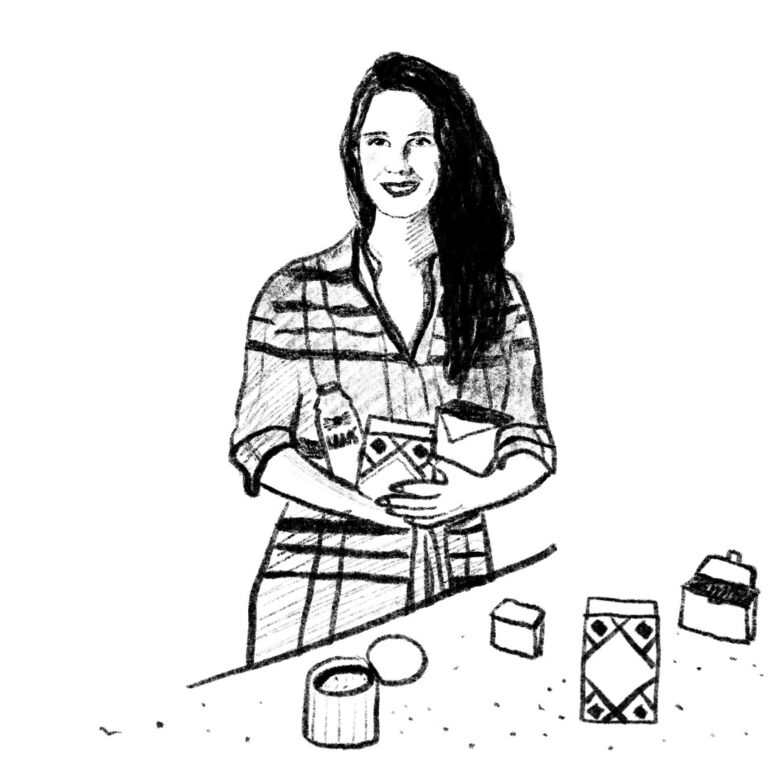
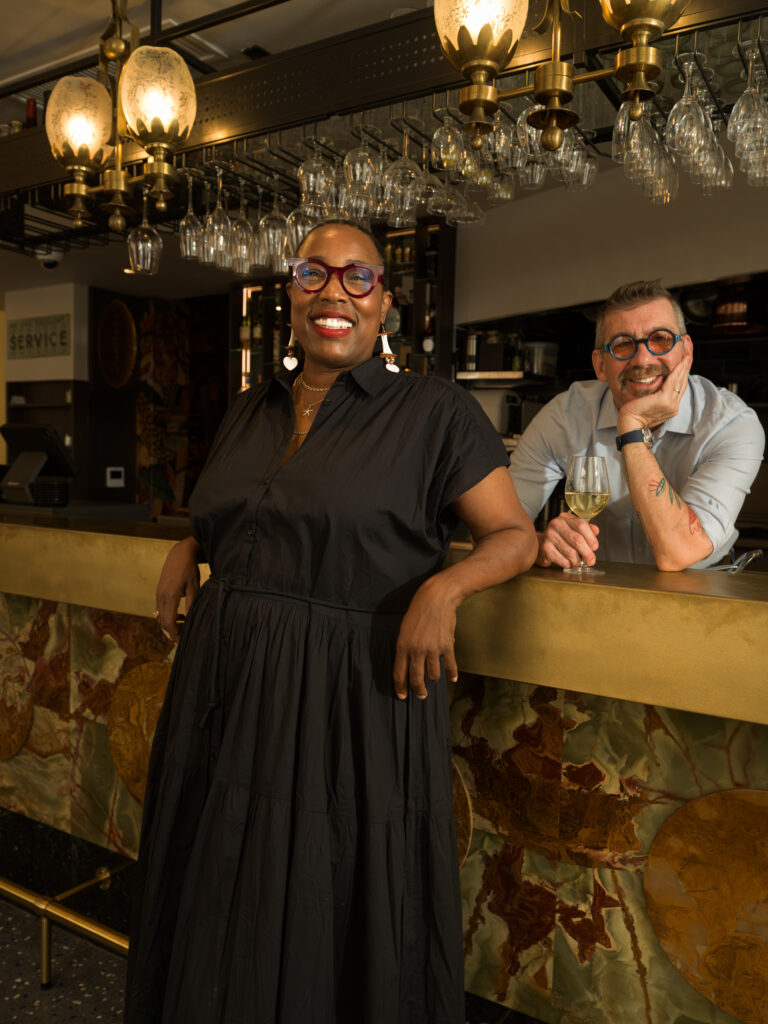
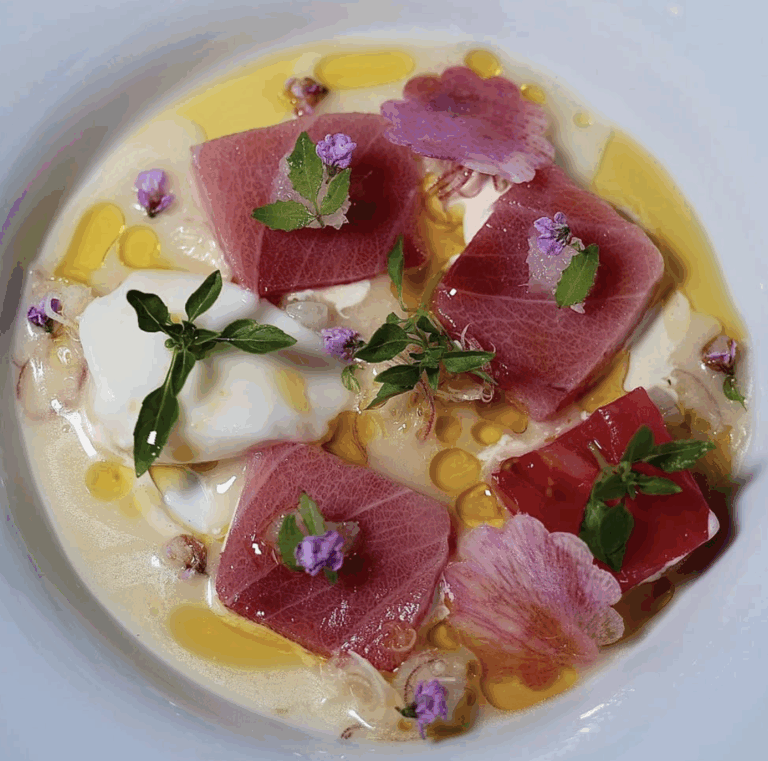
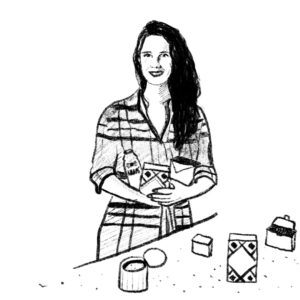
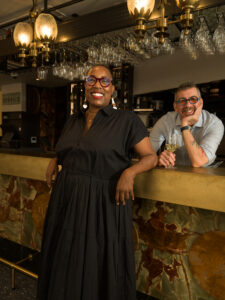
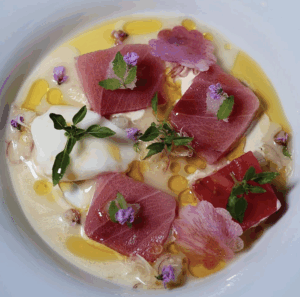



 in your life?
in your life?

